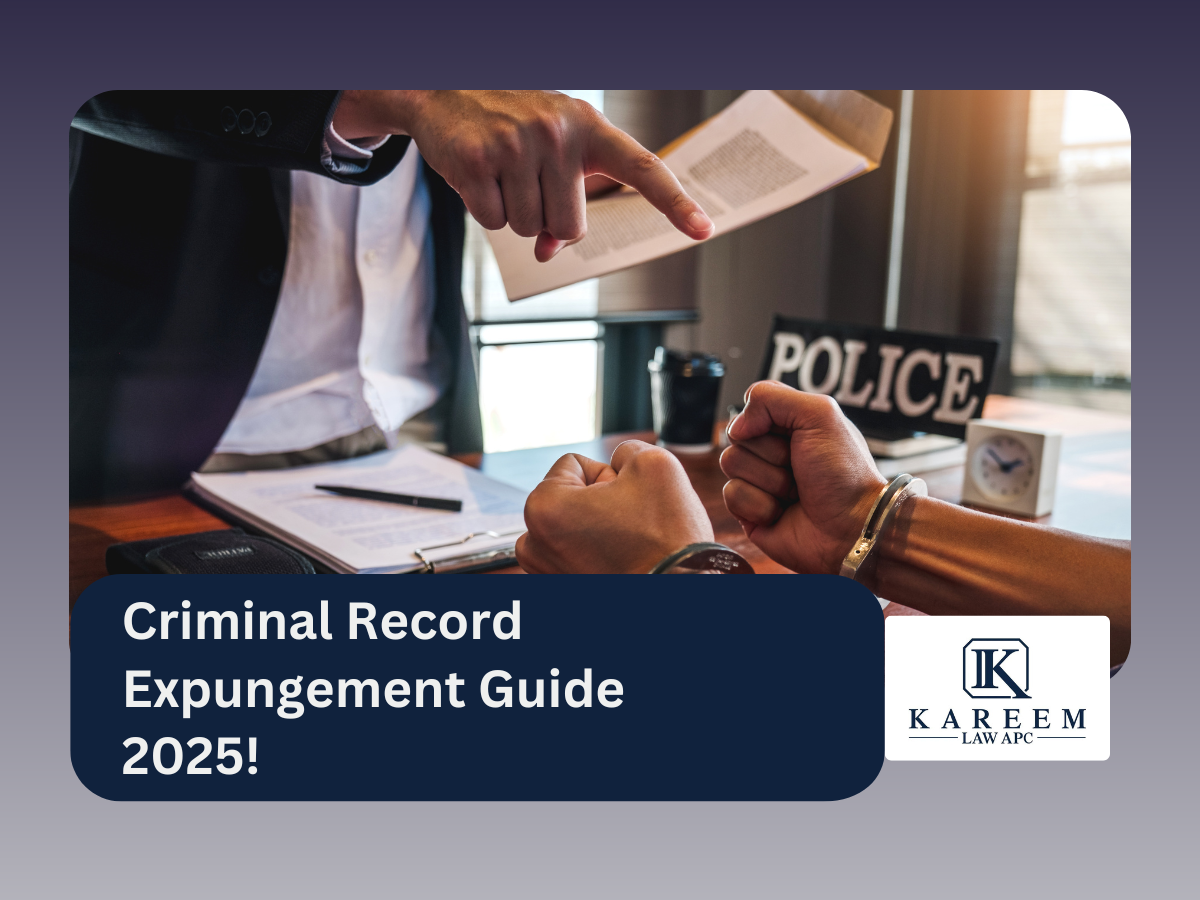A criminal record can be a lifetime obstacle in the United States for housing, work, and even education. Many people who have tried to turn their life around find that a past conviction shadows their future. Fortunately, persons wishing to start over have had the option of legally clearing or sealing a criminal record via criminal record expungement. An expungement attorney or expungement lawyer will help people negotiate this sometimes difficult process to maybe clear their criminal record. But as we enter 2025, is it easier to achieve a clean slate than ever before?
What Is Criminal Record Expungement?
Expungement is the legal process by which certain criminal records are either sealed or erased, making them inaccessible to the public. A successful expungement allows individuals to legally say they were not convicted of a crime when asked on applications for jobs or housing. For those looking to clear a criminal record, this process can be life-changing. However, expunging a felony or a misdemeanor can be more complicated, with varying eligibility requirements depending on the offense. It’s important to consult with a record sealing attorney, who can guide individuals through the intricacies of the process. Expungement laws vary significantly by state, meaning not all crimes are eligible for expungement, and requirements can differ widely.
Recent Changes to Expungement Laws
In recent years, several states have taken steps to make criminal record expungement more accessible, recognizing its importance in rehabilitating individuals and reducing the long-term impacts of minor offenses. In 2025, key changes in criminal record expungement laws include:
- Many states have expanded the list of crimes eligible for criminal record expungement, especially for non-violent offenses. In some places, individuals with certain felony convictions, such as drug possession, can now apply for criminal record expungement after serving their sentence, assuming they’ve maintained a clean record for a certain period. This change is a significant shift in criminal record expungement laws, offering more individuals the opportunity to move on from past mistakes. As more states revise their policies, criminal record expungement is becoming a crucial tool in providing second chances to those who have proven their commitment to rehabilitation.
- Some states, like California, have started implementing automatic criminal record expungement laws. This means that eligible individuals no longer need to apply for criminal record expungement themselves—if they meet the requirements, their records are automatically sealed. This could be a game-changer for people who face barriers due to their criminal history but may not have the resources to go through the process. With automatic criminal record expungement, the legal system is streamlining the process, helping more individuals clear their records without the added complexity and costs. As this trend expands, criminal record expungement may become even more accessible to those seeking a fresh start.
- In many states, the waiting periods for applying for expungement have been shortened. What once took several years after the completion of a sentence has now been reduced to a few, depending on the offense. This allows people to move forward with their lives more quickly. For those looking to remove a criminal record, the process is becoming more streamlined, with many individuals searching for expungement near me to find local legal resources. If you’re dealing with a more serious conviction, consulting a felony expungement lawyer can be crucial in understanding the best path forward to ensure a successful expungement.
- With the growing legalization of marijuana, many people who were convicted of marijuana-related offenses have been able to apply for expungement. This is particularly important as many states now permit recreational marijuana use, and individuals are seeking to clear records of previous convictions that are no longer considered crimes. Working with a clean record lawyer can greatly improve the chances of success, as they specialize in navigating the legal process to help individuals restore their reputations and move forward without the burden of outdated charges.
The Challenges of Expungement in 2025
While progress is being made, there are still significant challenges when it comes to criminal record expungement in 2025:
- Complexity of the Process: Despite improvements, the expungement process is still complex. It often requires filing petitions, attending hearings, and meeting strict legal requirements. In many cases, people may need the assistance of an attorney, which can be expensive.
- Not All Offenses Are Eligible: Even with expanded eligibility, many serious offenses—such as violent crimes or certain sex offenses—still cannot be expunged. For individuals with these types of convictions, a clean slate remains out of reach.
- Access to Legal Resources: While some states have streamlined the process, the availability of legal resources remains a barrier. Many individuals, particularly those from low-income backgrounds, may find it difficult to navigate the system without assistance. Legal aid organizations can be overwhelmed with cases, leaving people without the help they need.
- State-Specific Variations: As expungement laws vary widely by state, the path to a clean slate can differ greatly depending on where an individual lives. What is possible in one state may be impossible in another. This patchwork of laws can be confusing for people trying to understand their rights.
The Future of Expungement
Looking ahead, it’s clear that criminal record expungement is becoming more accessible, but it’s not without its hurdles. In 2025, as criminal justice reform continues to gain momentum, there is hope that more changes will be made to help people truly have a fresh start. Whether someone is seeking to get a record expunged, pursue criminal record sealing, or access reliable expungement services, the goal is the same—freedom from the limitations of past convictions. Legislative advocacy, growing public support for second chances, and the ongoing push for systemic reform may eventually make expungement more streamlined, universal, and equitable for all.
Conclusion
In 2025, the prospect of a clean slate through criminal record expungement is more achievable than ever before, but it’s not entirely seamless. While laws are evolving to offer more opportunities for people to clear their criminal records, challenges still remain. From adult cases to juvenile record expungement, individuals are seeking fair chances to rebuild their lives. With continued reform, greater access to legal resources, and a more consistent approach across states, the goal of helping people move forward without the weight of past convictions may soon be a reality for many.
For those looking to start fresh, it’s important to understand how to expunge a record—beginning with researching the specific laws in your state and consulting with legal experts who can guide you through the process. The road to a clean slate is not always easy, but it is becoming more accessible—and that’s a step toward a more just and rehabilitative society. At Kareem Law APC, we represent the best attorneys who have handled a wide range of cases. Get in touch with us today at (888) 506-6519!









